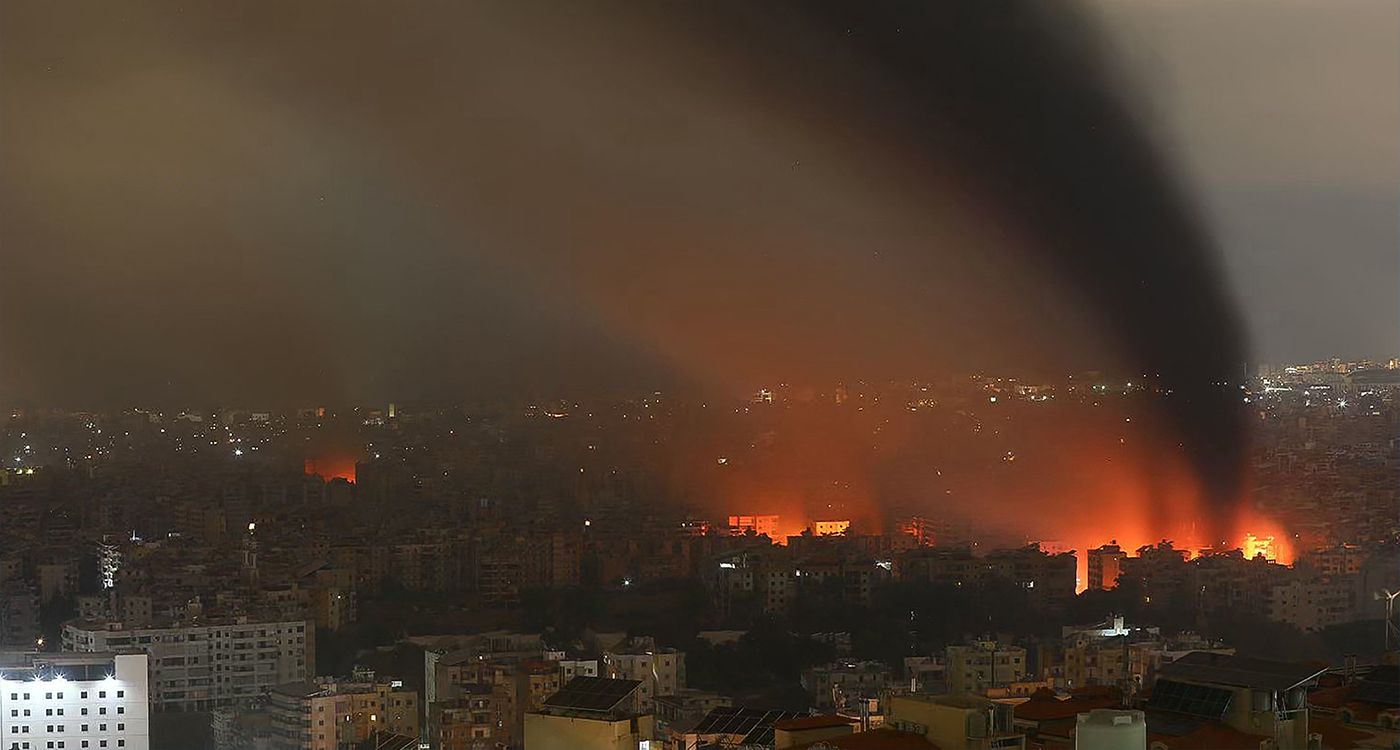
For weeks now, the southern suburbs of Beirut, commonly known as "Dahyeh," have been subjected to Israeli strikes that have recently become a daily occurrence. The neighborhoods have faced extreme turmoil since September 27, when Israel conducted violent raids that destroyed at least six buildings in Haret Hreik, targeting the Secretary-General of the pro-Iranian group, Hassan Nasrallah. However, behind the smoke of the explosions lies a Machiavellian military strategy.
Destroy and Deter
This is the story of a military strategy that Israel implemented during the 2006 war, focusing mainly on the southern suburbs of Beirut. This approach has since been referred to as the "Dahyeh Doctrine." The area, a Hezbollah stronghold, became a battleground that redefined Israel's response to its enemies. Entire neighborhoods were leveled, resulting in the deaths of hundreds of civilians.
Faced with a paramilitary organization that mastered asymmetric warfare, the Israeli state decided to target not only the fighters but also the infrastructure, homes, and roads — essentially everything that made normal life possible in this Hezbollah stronghold. The strategy was clear: to undermine the popular support that Hezbollah has within its own base by making the cost of war unbearable for civilians, hoping that they would rise against the pro-Iranian group's grip on Lebanon.
The Dahyeh Doctrine emerged from the belief that it was no longer just about winning battles but about making the war so painful for the enemy that they would forever abandon any desire to attack. It was not until 2008, however, that Israeli General Gadi Eizenkot unequivocally explained the doctrine in an interview with Reuters: "What happened in Dahyeh in 2006 will happen to all villages that serve as bases for attacking Israel. We will use disproportionate force there and cause significant damage. From our perspective, these are not civilian villages but military bases."
"It is not merely a recommendation but a plan that has been approved," he added. "Attacking the population is the only way to restrain Nasrallah."
But this doctrine did not prevent him from continuing to deploy his weapons among a civilian population — his support base — which has become human shields, whether in the southern suburbs of Beirut, in the villages of the south, the Beqaa Valley, or even in the highlands of Keserwan and Jbeil, north of Beirut, far from the border with Israel.
The 2006 war marked a turning point, as for the first time, Israel was not merely focused on neutralizing military targets but aimed to send a broader and more terrifying message.
Richard Falk, a professor of international law at Princeton University, even referred to the Dahyeh Doctrine as "state terrorism," claiming that it violates the most fundamental principles of the laws of war and even morality. However, he did not comment on the equally criminal practice of establishing military weapon depots in residential neighborhoods.
The Resurrection of a Ghost
On September 27, 2024, Israeli forces dropped over 80 "bunker busters" on Hezbollah's headquarters in Haret Hreik, killing Hassan Nasrallah. These bombs are so powerful that they can penetrate underground before detonating, with a destructive radius of 35 meters.
The strikes hit and destroyed six residential buildings under which Hezbollah's headquarters were located, creating a nightmarish scene for hundreds of thousands of Lebanese. Lebanon's Caretaker Health Minister, Firas Abiad, stated that some of the targeted buildings were "filled with civilian residents." However, his department later reported only 11 deaths and 73 injuries.
In his masterwork The Prince, published in 1532, Niccolò Machiavelli, the father of realpolitik, explains that the goal of rulers is to maintain their grip on power by any means necessary.
In the third chapter, there are pieces of wisdom such as, "The injury one does to a man should be such that one does not fear his revenge." The Israeli government applied this principle in both 2006 and 2024.
But is this strategy effective? In other words, has Israel succeeded, or will it succeed in achieving its objectives by pursuing this approach, assuming that less costly alternatives are available? The answer is no for 2006, as Hezbollah did not change its behavior. In fact, under Iran's influence, it continued to "weaponize" Lebanese villages, particularly those near the border, in violation of UN Security Council Resolution 1701 and the fundamental rights of the Lebanese people to live safely on their land.
It is still too early, however, to make a definitive assessment for 2024. However, one thing is clear: Hezbollah's base has remained steadfast in its support, even following the massive strikes of 2006.

Comments